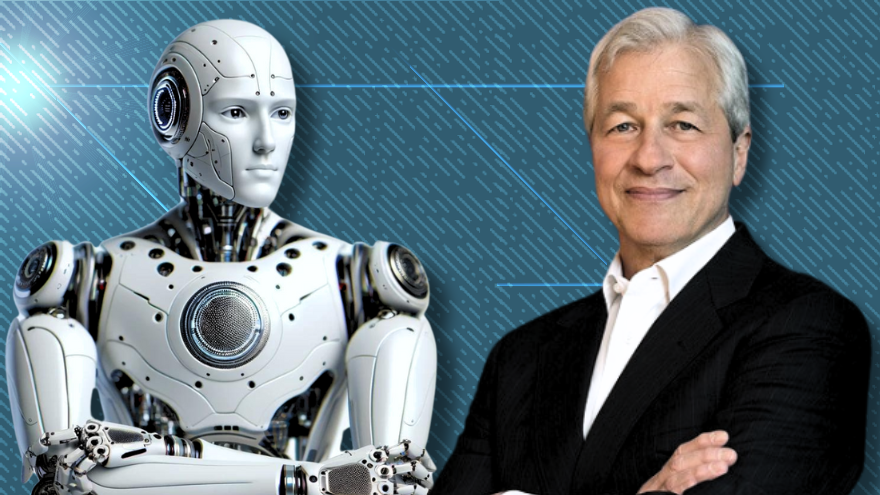In an annual letter to shareholders, Dimon explains that one of the “most important issues” facing the company is the impact of AI, though “we do not know the full effect or the precise rate at which AI will change our business — or how it will affect society at large.” Yet, as he states, the top brass at the world’s leading financial institution “are completely convinced the consequences will be extraordinary and possibly as transformational as some of the major technological inventions of the past several hundred years: Think the printing press, the steam engine, electricity, computing and the Internet, among others.” The optimistic vision Dimon holds for the future of AI stands in contrast to numerous others, who over the past year have issued dire warnings about AI, while calling for additional regulatory frameworks to provide guardrails for its development. In a Bloomberg op-ed, technology reporter and columnist Parmy Olson argues Dimon is painting too rosy of a picture about AI, downplaying the impact it could have on society. She emphasized that “AI’s impact will be far broader than that of the steam engine, which primarily transformed physical labor, manufacturing and transportation,” and that AI platforms becoming ubiquitous “represents an altogether different and wider impact on decision-making, creativity and even personal identity and the way people socialize.” JPMorgan began using AI more than a decade ago. The company has grown its staff to include more than 2,000 AI/machine learning (ML) experts and data scientists, according to the letter. The company has deployed predictive AI and ML for years and currently boasts more than 400 use cases — the ways in which a user interacts with a system or product — in areas including marketing, fraud, and risk. Developers at the company are also exploring the use of generative AI in software engineering, customer service and operations, and in general employee productivity, promising shareholders to “continue to experiment with these AI and ML capabilities and implement solutions in a safe, responsible way.” “Over time, we anticipate that our use of AI has the potential to augment virtually every job, as well as impact our workforce composition,” the letter states. Dimon also reiterates that risk-management remains top-of-mind for executives, as has a “robust, well-established risk and control framework that helps us proactively stay in front of AI-related risks, particularly as the regulatory landscape evolves.” The annual letter reassures shareholders, “You may already be aware that there are bad actors using AI to try to infiltrate companies’ systems to steal money and intellectual property or simply to cause disruption and damage. For our part, we incorporate AI into our toolset to counter these threats and proactively detect and mitigate their efforts.”JPMorgan Chase CEO Jamie Dimon says that developments in artificial intelligence (AI) could prove to be disruptive and transformational for society.
Technology /
Jamie Dimon: AI Could Be As Transformational As 'Steam Engine, Electricity'
'Over time, we anticipate that our use of AI has the potential to augment virtually every job'

*For corrections please email [email protected]*
